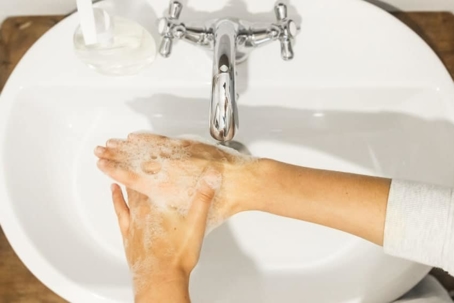If you’ve just turned on your hot water and find that it is suddenly much too hot … you’ve got a problem. Not only a problem — a hazard. Overly hot water can scald and burn, especially children (who have extra sensitive skin). And a hot water tank or tankless water heater in Calgary that is overheating is at risk of explosion.
Keep your home and family safe. Find out why your hot water is running too hot and take care of the issue behind the scenes fast. Here are four possible reasons.
1. Water Heater Thermostat Needs Adjustment or Repair
Your water heater thermostat — or thermostats (some heaters have two) — is designed to control the temperature. So it’s naturally the first place to check.
You can easily fix a thermostat that is set too high — simply turn the dial to lower the temperature. The recommended hot water temperature is 49 degrees Celsius. For a hot water heater with two thermostats, make sure both are set to the same number. And consider adding a mixing valve to your water heater or plumbing fixtures for extra protection.
Ensure that each thermostat is positioned snugly against the side of your hot water tank.
If adjusting the setting and position doesn’t help, your thermostat may be broken. Never try a DIY replacement of a water heater thermostat. You’ll need a professional plumber to do it safely.
2. Pressure Relief Valve Is Blocked
Another common source of extremely hot water is a blockage of the pressure relief valve. Normally, this valve relieves pressure and allows steam to escape from your water heater. When it’s blocked, you are likely to hear a boiling sound from the hot water tank.
Danger alert! Your water heater could be on the verge of exploding. Turn it off immediately and call for emergency plumbing service.
3. Mineral Sediment Has Built-Up
Calgary’s hard water contains a high percentage of calcium and magnesium. As water is piped into your water heater, these minerals settle on the bottom of the tank. Eventually, they can build up and interfere with the heating element, causing it to either under or over-heat your household water.
How to prevent this? Flush your water heater to remove the minerals. This involves closing the water supply shut-off valve and switching off the power and then draining the system.
Water heater flushing is a time-consuming, messy process. Though you could do it yourself, you can avoid the hassle and leave this task in the hands of a pro, perhaps as part of a scheduled HVAC maintenance package.
How Often Should I Flush My Water Heater?
Whether natural gas or electric, all water heaters should be flushed at least once every year. Tankless heaters also need regular annual flushing and cleaning to remove mineral sediment.
Installation of a whole-house water softener is a fantastic way to reduce mineral buildup and keep your water heater in good shape. Check out our water softener buyer guide for more information.
4. Heater Element Is Failing
Do you own an electric water heater? In that case, your problem might be a failing heater element. If so, the element will remain on constantly, causing severe overheating of your water and of the element itself. Eventually, the heater element will entirely burn out.
Here, the solution is to replace the heater element — a tricky, potentially dangerous job that should be performed only by a skillful licensed plumber.
How Do You Know When to Replace a Hot Water Heater?
Rule of thumb: Hot water tanks generally last 8-10 years. (Tankless water heaters can last up to 20 years.) Start shopping for a replacement water heater as your appliance approaches this age — or even sooner if it needs frequent, pricey repairs.
Look for these two important qualities in a new water heater:
Energy efficiency. An energy-efficient water heater will give you the comfortable water temperature you want, while saving money on your utility bills.
Correct size. When buying a hot water tank, ensure that it’s the correct size. Too large a tank will waste energy, but an undersized tank won’t keep up with your household’s hot water needs.
Knight — Your Calgary Water Heater Experts
Is your water heater acting up? Contact Knight for reliable water heater repair and replacement in the Calgary area.
We also provide a full range of HVAC, electrical, and plumbing services, including water softener installation.






